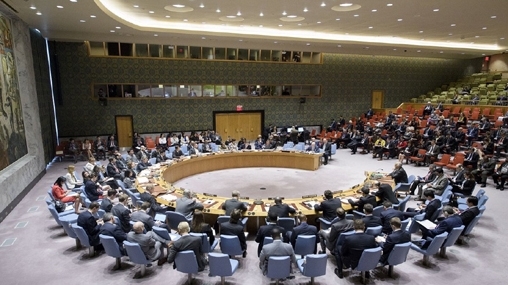
A long diplomatic battle between two African countries will come to an end today Wednesday 17 June at the United Nations.
Kenya and Djibouti have been battling for a year to claim the non-permanent African seat on the Security Council for the years 2021 and 2022 to replace the outgoing South Africa.
Diplomats are returning to the UN for the first time since March. A brief look back: the representatives of the 193 countries are to elect the five candidates who will sit on the Security Council from January 2021. With a surprise for the seat reserved for Africa: instead of the single candidate usually presented, the seat is contested by two countries this year: Djibouti and Kenya.
Due to exceptional health measures, the UN General Assembly’s open ballot in New York is likely to last a long time. Each Member State must cast its vote at an agreed time under the supervision of the Chairman of the meeting. And this procedure will have to be repeated in the event of a new round of voting.
Only candidates from their region, India, Mexico, Canada, Ireland and Norway should be elected. It is the African seat that is the only real issue at stake in the vote. For months now, Kenya and Djibouti have been campaigning to claim the votes of the Member States. And no mediation, not even that of the Egyptian presidency of the AU, has been successful.
Kenya comes forward with the official support of the African Union, affirmed in August 2019 and reiterated last week. This would be a major political advantage for Kenya, an English-speaking regional power, especially in its disputes with Ethiopia or Somalia. A support that Djibouti considers “illegal”, since it has not been endorsed by the heads of state: “The AU examined the situation at the last summit and noted the procedural flaws. Normally, this is where the heads of state validate the official candidate, but they could not do so,” says Djibouti’s ambassador, Mohamed Siad Doualeh.
Djibouti, for its part, feels that its turn has come, having sat only once in 1993. The diplomatic success of the summit between Somalia and Somaliland on Sunday seems to him a good argument to prove its pivotal role in a still very troubled region. Djibouti has multiplied diplomatic ties and boasts the support of the Francophonie, the Organization for Islamic Cooperation and the Arab League, among others.
Winning a non-permanent seat on the Security Council is a huge challenge.
